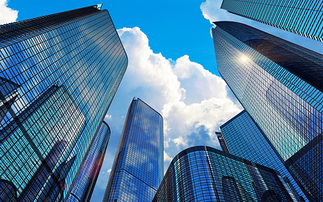Without tackling inequality, achieving the rest of the Sustainable Development Coals will be almost impossible, argues Ben Martin at the Green Economy Coalition
It's sometimes easy to lose sight of how radical the Sustainable Development Goals really are. Consider what achieving the SDGs would actually entail: a world with no poverty and no hunger, carbon reduced to net zero, a restored and rejuvenated natural world, whole sectors - energy, transport, food, construction - transformed almost unrecognisably. We at the Green Economy Coalition believe the SDGs are a roadmap to a genuinely different world.
But achieving this vision won't be easy. Legislative tweaks around the margins or a light dusting of CSR won't get us there. To achieve any one of the SDGs - clean and cheap energy for all, say, or reversing the ongoing extinctions of millions of species, or decarbonisation fast enough to stay under 1.5°C - will require new economic structures, big social changes, and seriously ambitious legislation. To achieve all 17 together will require transformation on an almost unprecedented scale. Existing industries, jobs, and communities will be impacted heavily. And vested interests will put up quite a fight.
So how can we achieve these ambitious, profoundly transformative SDGs, without alienating a significant chunk of voters, employees and shareholders? Turns out, the answer was in the question all along. SDG 10 - reducing inequalities - is the key.
If it's not fair, it won't fly
It's a commonplace to say the SDGs must be achieved all together or not at all. So far, however, most governments and businesses are cherry-picking the goals that they're already doing the best on, and de-emphasising those that they feel are less relevant. SDG10 is a particular victim of this. After all, when compared to ending poverty, zero hunger, or climate action, merely "reducing inequalities" can seem a bit B-list. But nothing could be further from the truth.
Here's why. First of all, pro-SDG policies are not automatically popular with the public. It's not hard to find examples of new environmental and social laws struggling for support - 'gilet jaunes' protests against green fuel taxes, Australia's tussles over carbon pricing, endless Obamacare conspiracy theories, the election of Bolsonaro, Trump, Orbán et al and promises to roll back action on climate, environment and development. As environmental crises mount, and the scale of change ratchets up, these political struggles will only intensify.
Some profess bewilderment at this. Why would voters reject better healthcare, cleaner air and water, a safer world for their children? Are they ignorant, selfish, less educated? Shouldn't green leaders just ignore these dupes and press ahead regardless?
In fact, these voters are articulating an entirely rational position, based fundamentally around inequality. They are asking - forcefully, repeatedly, and reasonably - that since it is the high carbon, high consumption lifestyles of rich elites that are creating the problem, why should the costs of climate and environmental action fall mostly on the poor?
Tackling inequality to unlock sustainability
Globally, the more unequal societies strongly correlate with those most damaging to the planet, while the world's richest 10 per cent are responsible for more than 50 per cent of global carbon emissions. Inequality drives envioronmental destruction, but the suffering this causes is distribuited unequally too.
Air and water pollution is worse in the poorest neighbourhoods while climate disasters, extreme weather and environmental damage disproportionately harm the poor and vulnerable.
People have an instinctive sense of fairness. They want environmental action to benefit everyone, not just elites, and they want the costs of that action to fall equitably on the shoulders of those most responsible. It's a simple argument, but an unanswerable one.
Yet all too often, economic policies that are "good for everyone" in the long run still fail to deliver real benefits to those people whose lives will be most affected in the near term. If green politicians shutter the only job you've ever had, its cold comfort to be told that it was based on a brown economic model that couldn't last anyway.
Pressing ahead with a green agenda without addressing justice, equity and inclusion will always be counterproductive. Affected communities - be they coal miners, farmers, or car workers - will reject policies that sacrifice their livelihoods for distant, abstract objectives like "biodiversity" or "decarbonisation".
Yellow vests and green hearts
The quintessential example here is France's gilets jaunes protests. The immediate triggers were a fuel tax hike and a lower motorway speed limit, both presented by the Macron government as necessary for France's "ecological transition". A narrative quickly took hold in the press that the protesters were reactionary rural bumpkins, addicted to fossil fuels and fast driving - especially when the government dropped the fuel tax in an unsuccessful attempt to restore calm.
But dig a little deeper, and it's clear that the protesters were motivated mainly by outrage at the economic injustices and inequality of modern France, as well as personal antipathy to Macron. Opposition to the fuel tax was driven, at least in part, by how regressive it is.
A flat fuel tax overwhelmingly hurts struggling workers in rural areas, while the benefits of lower air pollution would mainly be felt by wealthy city-dwellers. The majority of gilet jaunes protestors come from a world of insecure employment, rural poverty, and increasing inequality. It's not hard to see why the fuel tax became the straw which broke the camel's back.
SDG10: the key to unlock the transition
The gilets jaunes protestors are a powerful symbol of why social justice must always be at the heart of environmental justice. Green policies must also address equality, or they will be rejected. Unless we achieve SDG10 - not as an afterthought, but as the central plank of any green agenda - then we are dooming ourselves to a "fast yet fragile" technocratic transition, opposed by many and easily undone.
Luckily, policymakers are waking up to the power of a bottom-up approach. Macron dropped the fuel tax, but launched instead a Citizens' Convention for the Climate, a people's assembly of 150 randomly selected voters charged with overhauling France's climate and environmental policies; the Canadian province of British Colombia invests the profits of its carbon tax into social care; community forestry schemes in Nepal, Indonesia and Korea have reduced deforestation while generating income for the poorest. Many more examples can be found in our Green Must Be Fair report.
Corporate leaders too see the writing on the wall. "Business with purpose" is an idea whose time has come, with a new wave of B-Corps, co-ops and social enterprises aiming to benefit people and planet, as well as achieving profit. Representation of employees and even young people on corporate boards is moving from a fringe idea to the mainstream. And the ever-increasing ratio of CEO to worker pay - arguably the defining inequality issue of our time - is coming under increasing public and political scrutiny.
Savvy politicians and professionals alike would be wise to start grappling with the issue of inequality. People need to believe that new policies or business decisions will benefit them, their families, their communities. They need to see that they are valued and represented in the boardrooms and ministries that guide this transition. And they need to know that the green transition's benefits and costs alike will be shouldered fairly by both rich and poor. Inclusion is how sustainability gets to scale.
No-one said achieving the Sustainable Development Goals was going to be easy. But without tackling inequality, hitting the rest of these radical, laudable goals will be almost impossible.
Ben Martin is communications editor at the Green Economy Coalition.







